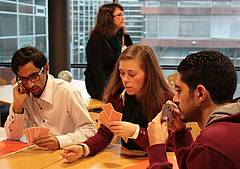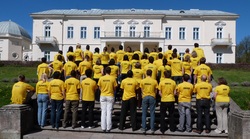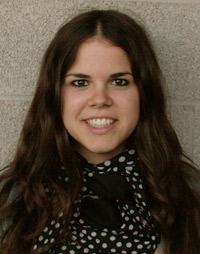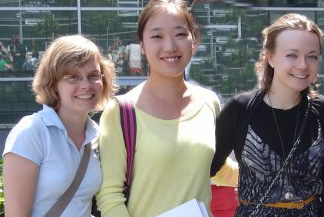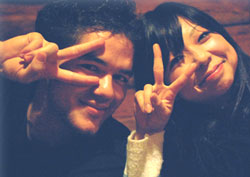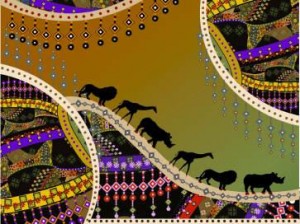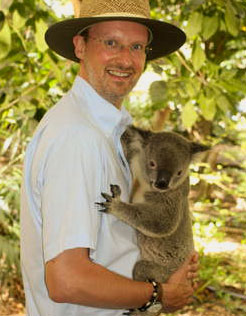Firefox users please try another browser so that you can access the audio player.
If you like the podcast then LIKE US ON FACEBOOK HERE!
The sound we started with was an instrument made by Thomas Kubayi who sculpts, drums and plays music and who gave my daughter a sculpting lesson when my family stayed in the Limpopo region of South Africa last year. It just so happens that I am working with a South African partner in a European project, the Uni-Key project, so I was very excited to meet Marié-Tinka Uys on her home turf when she showed me round some of the many projects which abound in her region of South Africa which is centred on Hoedspruit just outside the famous Kruger National Gamepark. The UniKey project is about supporting university interns who choose to do their internship in small enterprises rather than the large well-known companies. This means that the interns have a better chance of working with the founder of the company and get a better feel for the entrepreneurial skills needed to run a company. Europe is starting to send interns outside the EU, for example to South Africa, and there are plans for promoting exchanges in the other direction too with South Africans able to do internships in Europe. The UniKey project has developed an online course for the interns to follow and what we needed from our South African partners was some feel for how well our online course would travel outside of Europe. For example when we talk about marketing and partnerships in the UniKey course, is our definition wide enough to encompass the African way of doing things? What about our definition of business even? Marcelle Bosch, a Dutch woman and former aid worker, has her sustainable tourism lodge business, Madi A Thavha where we stayed a few days. Can you make a living employing the former farm workers that gained their livelihood from the land that you just bought? I also spoke to Costas who works for a clinic supported by the farms, which in South Africa, are huge concerns employing thousands of workers who often live on site. This is very different to farming in Europe which is highly mechanized with very few employees. And while we in Europe depend on a universal health service paid for through taxation, South Africa is facing the HIV and Aids epidemic which affects mainly adults in their prime, so health projects are often centred around the workplace as in the case of the Bavaria farm I visited near Hoedspruit where the clinic is financed partly by the employers and partly by community efforts. We’ll also be hearing a new perspective on how to improve the status of women and how European experts can’t always cope with the differences they meet in the African context. Welcome to Melina, Akos and Omar who are the latest people to like our Facebook page.
absolutely sustainable
So let’s start at Madi a Thavhi by seeing how we can be absolutely sustainable in the Limpopo region of South Africa on a former farm near Louis Trichardt or Makhado as the town is also known. And by the way, why towns have two names in South Africa is a whole other story which we could discuss on the Absolutely Intercultural Facebook page if you want to know more.
absolutely positive
So that was an example of how to look after your employees in a small scale business and now you can hear the sound of my daughter having a go at sculpting wood with renowned local artist, Thomas Kubayi. While I was in South Africa I had the chance to discover that there is a wide range of community organisations working hard with the big employers to provide all sorts of health, education and other benefits for their employees. So this means that instead of local government or public sector provision, there is a much more local and volunteer based-coverage in South Africa. In the Hoedspruit area the two businesses I heard most about were the game lodges and the farms. So my next visit was to a clinic based on a fruit farm which treats mainly HIV and AIDs patients through the Hlokomela project. In speaking with Costas I learned that when you are HIV positive, a key indicator you need to look at are your CD4 levels and I also learned that, at least on this farm, the disease can be managed so that there are reasons to be absolutely positive!
absolutely equal
As I was driven around the projects by Marié-Tinka Uys my eye was drawn to a set of murals painted on the wall of the Bavaria farm showing desirable male behavior such as not drinking and not using physical violence against your wife. When I asked Marié-Tinka about these she gave me a surprising solution about how to affect gender roles.
absolutely tasty
Marié-Tinka also talked about another part of the Hlokomela project which is an organic herb garden which has been started to supply the many game lodges in the Hoedspruit area. As we were talking she mentioned why interns should come alone and gave one example where the foreign expertise just could not cope with the differences experienced in South Africa.
Thanks to everyone who was willing to speak to me in South Africa and especially to Marié-Tinka Uys who introduced me to the wealth of activity going on in her area. She literally opened doors and gave me a peek into so much, which, as a tourist I would never have experienced. Thanks also to the UniKey project for giving me the opportunity to wonder about how people do business in other parts of the world. Who knows? This might even be the start of your own African internship adventure?
absolutely Amazon
And if you want even more background as to broader issues behind what people were telling me about in this podcast then you might consider visiting the Absolutely Intercultural Amazon store here where we have both classics, basics and specifics for sale, a small proportion of which goes to us to support the costs of maintaining this podcast. You don’t pay any more to buy them through our store and every purchase contributes a little to the running costs of the podcast so if you’re thinking of buying, consider using our new store. There is a permanent link at the top of this blog page.
Our next show will be coming to you from Dr. Laurent Borgmann on February 1st so stay tuned!
The host of this show is: Anne Fox
Editing done with the help of Hindenburg Journalist Pro

